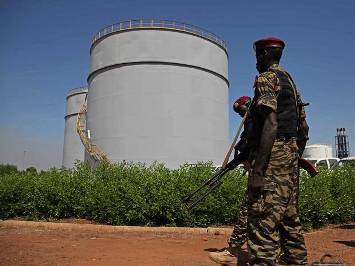South Sudan plans to double oil production
January 29, 2017 (JUBA) – South Sudan aims to double its oil production to 290,000 barrels per day in fiscal year 2017/2018, up from current output of around 130,000 barrels per day.

“The resumption is underway,” said the finance minister, adding that “The conflict has affected the facilities, including the power.”
Currently, the main oil firms involved in South Sudan’s production are China National Petroleum Company (CNPC), Malaysia’s Petronas, and India’s Oil and Natural Gas Corporation (ONGC) Videsh.
Since its independence in 2011, South Sudan has depended on oil for all income, despite the country’s huge potential in other minerals.
According to South Sudanese officials, production in the past reached as high as 350,000 per barrel, but fell after a dispute with Sudan over fees for pumping South Sudan’s crude through Sudan’s export pipeline, which led South Sudan to halt production in 2012.
The oil sector, which accounts for over 90 per cent of government revenues, has been badly affected the recent war, in addition to the decline in oil prices on world markets.
Commodity prices also shot up due to the devaluation of the local currency, South Sudanese pound, which has gravely impacted on the transport sector in the country.
Inflation jumped to over 800 percent a year, and the government is increasingly unable to pay civil servants and military forces.
According to the finance minister, however, inflation has now slowed to 10 percent a month and that the government was now planning to help the country’s central bank build foreign exchange reserves.
“We will reduce the money supply in circulation,” said Dau.
“We will stop our borrowing from the central bank, it’s one of the causes that led to inflation,” he added.
Observers say despite being oil-rich, South Sudan is likely to record negative gross domestic product growth in 2016 after growing by 30.7 percent two years ago, largely due its ongoing conflict, decline in oil production and global fall in oil prices
(ST)
